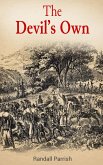In "Last Post," Ford Madox Ford masterfully concludes his acclaimed Parade's End tetralogy, employing a blend of modernist literary techniques and a keen psychological insight into the complexities of post-World War I society. The narrative intricately weaves themes of disillusionment, identity, and the shifting dynamics of class and gender roles, reflecting the tumultuous backdrop of early 20th-century England. Ford's distinctive prose, characterized by his use of fragmented timelines and rich, multi-dimensional characters, invites readers into the psyche of Christopher Tietjens as he grapples with the residual impacts of war on personal relationships and societal norms. Ford Madox Ford, an influential figure in modernist literature, draws upon his own experiences as a soldier during World War I to inform the existential dilemmas faced by his characters. His unique perspective is shaped by a lifelong engagement with themes of duality and moral ambiguity, often mirrored in his personal life and relationships within the literary circles of his time, including connections with notable contemporaries such as Joseph Conrad and Ezra Pound. "Last Post" is an essential read for those interested in literary explorations of trauma and the human condition. Ford's intricate prose and profound insights render this work not only a culmination of the Parade's End saga but also a timeless reflection on the struggle for meaning in a fractured world. Readers will find themselves captivated and challenged by Ford's exploration of the emotional landscapes that linger long after the last shot is fired.
Dieser Download kann aus rechtlichen Gründen nur mit Rechnungsadresse in A, B, BG, CY, CZ, D, DK, EW, E, FIN, F, GR, HR, H, IRL, I, LT, L, LR, M, NL, PL, P, R, S, SLO, SK ausgeliefert werden.









